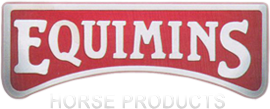Should you feed from the floor?
There are arguments for and against feeding from the floor, but if your horse suffers from any kind of respiratory ailment, it could be worth consideration.
Horses are designed to graze, and that means that eating from the floor ‘fits’ their ‘design’. Eating from the floor encourages natural respiratory drainage, exposes him to less respiratory irritants and prevents these from being inhaled. It also has a positive impact on the horse’s muscles and joints as, again, feeding from the ground supports the muscles and topline, reduces strain, and encourages stretching. And, last but not least, the digestive system is supported as horses are more likely to chew slowly, produce more saliva to support the digestive process and, again, the horse is in the most natural position.
So, why doesn’t everyone feed from the floor?
There are a few reasons. Using haynets can be easier and cleaner. You can get your hay weighed out and ready to go in advance and you can then just tie it up and you’re sorted. You can also opt for different sized holes in haynets to extend feeding times if you have a greedy horse or one who needs to be kept amused for longer. Haynets can also produce less mess and wastage as the horse can’t really trample the hay into his bed, and there’s also an argument that it can reduce vermin. Conventional hay mangers, which allow loose hay to be dropped in to them, can also help reduce waste.
Another option is a low level manger, or robust, rubber container that will allow the horse to feed in a natural outline at the same time as preventing the hay being mixed in with the horse’s bedding and being trampled on. These containers can be useful if your horse is more flamboyant with his approach to eating. This method also supports the natural way of feeding, but in a slightly tidier way if the horse requires a bit of extra help.
Feeding from the floor is, without a doubt, the most natural way to feed. And it has a lot of benefits too. You don’t need any fancy devices, expensive nets and mangers, and it can improve your horse’s respiratory health too. Definitely worth considering we say!

 Equimins specialises in producing natural horse supplies, products and supplements for the major areas associated with caring for a horse. All products are proudly made in the UK and excellent specification quality products are of paramount importance. Using this blog we want to share some of the knowledge we have gained through nearly 30 years of experience.
Equimins specialises in producing natural horse supplies, products and supplements for the major areas associated with caring for a horse. All products are proudly made in the UK and excellent specification quality products are of paramount importance. Using this blog we want to share some of the knowledge we have gained through nearly 30 years of experience. 


